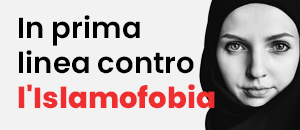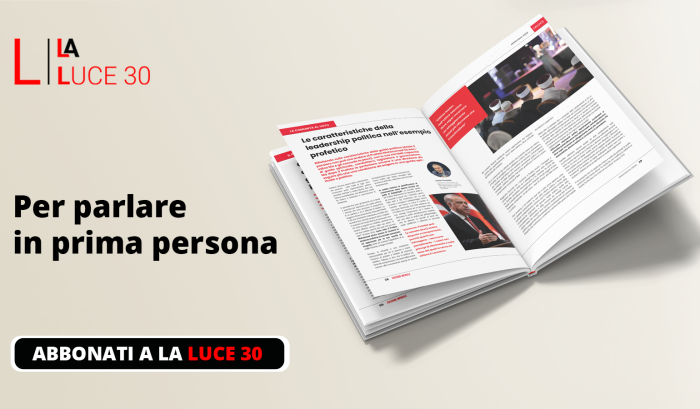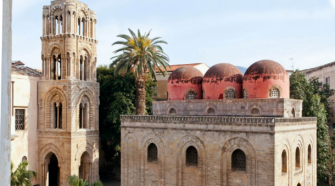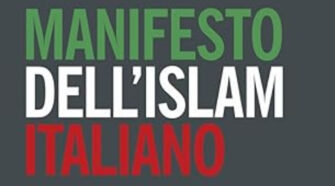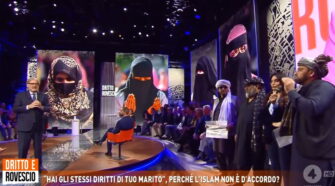Emmanuel Macron and the Austrian Chancellor Sebastian Kurz met in Paris last Tuesday to discuss next steps in the joint attack against their respective Islamic communities, with the ambition of expanding their persecutory policies to the whole continent. However, Macron’s attempt seems to be headed towards failure; Italy is not following him and Merkel’s response was a moral slap to the French president’s ambitions.
Since France new prime minister Castex took office, Macron has waged a battle against what he called Islamic separatism. The definition, which refers to an alleged will of Muslims to live in a separate society, does not actually have any scientific basis.
Anyone who knows French history knows that the contradiction between the segregation policy of the banlieu and the assimilationist approach constitutes an explosive mixture. Another big issue is the legacy of colonialism; we understand that the current France crisis can only get worse without a change of direction.
A reversal that Macron does not intend to implement. On the contrary, after having defended the right to blasphemy as a founding value of the republic, the French president launched a repressive campaign against all social, political and humanitarian organization of France Muslims.
The ideological support is provided by the concept of “Islamic separatism,” a new definition which is nothing more than a set of stereotypes that do not represent French Muslims at all. In this regard, borderline cases are presented as paradigmatic, as the case of the Muslim woman who rejects the male doctor.
By now, even such things as the free and legitimate choice to eat only halal food, or being offended by blasphemy, are considered signs of radicalization and separatism. So much so that the French interior ministry has recently set up a toll-free number to report the neighbor who shows signs of radicalization. Macron himself said that even praying five times a day is a sign of radicalization.
Freedom of expression has become a problem when exercised within the limits of the law by Muslims. This is the case of Idriss Sihamedi, president of the NGO Baraka City, who was arrested for criticizing on social media Macron and some Islamophobes.
Community organizations are the target of police operations and so is the CCIF, the Islamic Collective Against Islamophobia, which has always been at the forefront against discrimination—the CCIF organized the largest demonstration against Islamophobia ever seen in France.
On the other hand, Austria is the European country with the oldest institutional recognition of Islam as a national religion, since 1912, when the Austrungaric Empire promulgated a law to recognize the rights of its community, which included also the citizens of Bosnia. However, the Kurz government took a turn in an anti-Islamic sense.
In fact, the young right-wing chancellor was more precise than Macron when he identified as a target everything that he considers to be part of the galaxy of Muslim Brothers. Then, he took action against schools and mosques of the Turkish community and banned the symbol of Brotherhood. A few days ago, the police carried out a large operation against people and associations accused of Islamic extremism. At the core of the government’s actions is the expression “political Islam,” a concept that the Austrian Chancellor proposed to convert in a crime soon.
The institution of this new form of crime closes the loop. It started with a very insidious theorization that defines “political Islam” or “Islamism” as the intellectual or organized manifestation of a socio-political implication of faith. Basically, it takes very little to be labeled as a healthy bearer of Islamism—and consequently be criminalized. Just do politics, information or humanitarian work in the name of Islamic principles and values, which is obviously allowed to Christians or Jews. It is worrying that the concept is deliberately vague and broad that it allows putting in the same bag those who run a humanitarian organization and an ISIS killer.
Although the Austrian prosecutor was quick to declare that there is no relationship between the people affected by the operation and the attack in Vienna, the timing seems designed to suggest something else.
About the Vienna attack, while it is known that the terrorist had previously tried to enlist in ISIS, the three French bloody facts do not have a religious motive; two facts have been clarified and the third seems to be heading towards the same conclusion.
Returning to the Paris summit between Macron and Kurz: The French president must be desperate enough if, in his anti-Islamic offensive, in which he spasmodically seeks to create a European front, he has failed to involve anyone but a right-wing government of a country that is not quite a European heavyweight.
The opposition in Italy points the finger at Prime Minister Conte for not being invited by the French. In reality this is an excellent news, reflecting a deep difference in approach between the two countries with respect to Islam, and a growing distance on international files.
The colonial past does not weigh heavily in our country’s relationship with Italian Muslims; our model is one of flexible integration that has not seen the proliferation of the banlieu and does not suffer from the problems caused by the secularist approach of the French state. Furthermore, our intelligence seems to be more efficient than the French in fighting terrorist networks. The French secret services not only demonstrated very incapable but, in some cases, were directly involved in the attacks.
In addition to this, with regard to international politics, after the removal of Gaddafi by Sarkozy, the distance between Italy and France has grown to determine their position on two different fronts throughout the eastern Mediterranean game. First on the Libyan question and consequently on their relationship with Erdogan, Macron’s great opponent, Paris and Rome are on opposite sides.
These differences represent an advantage for Italy on the domestic front, as it allows it both to continue an overall harmonious integration of the Islamic community and to seek a privileged partner role in the relation to the Muslim countries. In short, we should recover the policy that belonged to Enrico Mattei, the suspicions of whose death, not surprisingly, fall on the French.
Macron has led France to a dead end. National companies have called for redress to put an end to the boycott of their products and, apart from Kurz, the attempt to enlist other countries has also proved a failure at European level.
Emblematic in this sense was the response of Angela Merkel who, with regard to European solutions against extremism, proposed the German Islamic Conference as a model. In this body, established by the government, the main German Islamic organizations are represented: DITB, the Turkish-Islamic Union for Religious Affairs and Government expression of Ankara and the Central Council of Muslims of Germany, a reality of reference for Muslims of Arab origin, ideologically close to the Muslim Brotherhood. The council also sits Milli Gorus, another Muslim organization of Turkish origin represented through the Islamic Council of the Federal Republic.
In short, the Chancellor’s response was a slap in the face of Macron’s anti-Islamic and neo-colonial ambitions.

